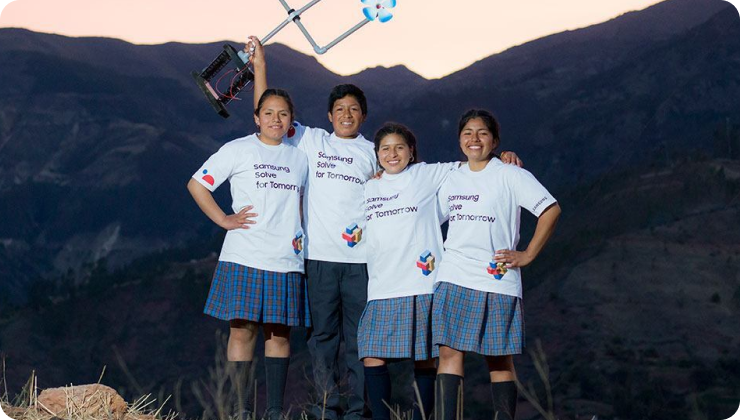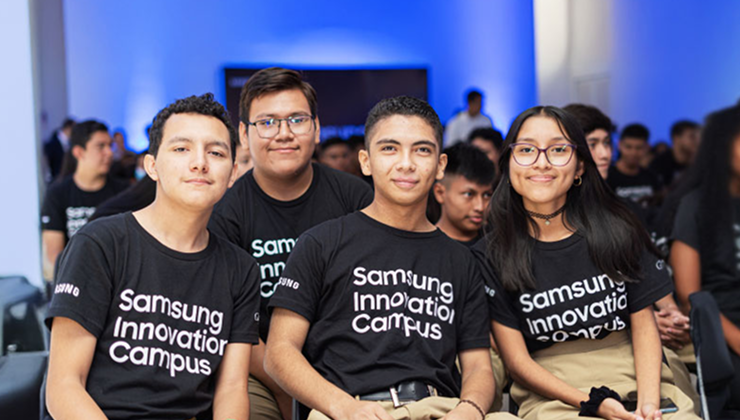People, Change, Together
At the heart of Samsung lies the belief that people are our greatest strength. We embrace change as an opportunity to grow and innovate, driving progress in every endeavor. Together, as global citizens, we are committed to supporting the changing of global youth, uniting our efforts to create meaningful impact and foster a brighter future.
Empowering Future Generations
We actively utilize our technology, resources, and expertise to generously support young people, fostering talent and promoting mutual growth to drive innovation and contribute to building a better world. Through these efforts, we aim to empower them to directly experience these values, dream bigger, and imagine more.
Samsung Solve for Tomorrow encourages young minds to envision and realize innovative solutions that can resolve challenges and risks that their communities face.

Samsung Innovation Campus is a program that helps young people solve problems through technology and innovation, and grow into future leaders.

Our Journey of Positive Change
Samsung has been driving positive change worldwide through innovation, sustainability, and community impact. Over the years, we have paved the way to create meaningful impact, leaving a lasting legacy of progress and transformation.

98K+
Total employee donors
2024
4M+
Cumulative number of global beneficiaries
Over a decade


30Y
Establishment of a dedicated corporate social responsibility organization
Since 1995
What’s New
Check out the latest information on Samsung CSR
Italy
Samsung Electronics announced the selection of 10 global Solve for Tomorrow Ambassador teams as part of its corporate citizenship initiatives
Algeria
Closure of the 3rd edition of Samsung Innovation Campus Algeria
Singapore
Empowering Independence, Connection and Access Through Tech Innovation Across Southeast Asia and Oceania
Türkiye
Samsung Solve for Tomorrow Program 2025 Türkiye Winners Crowned: A Triumph of Innovation and Youth Empowerment
Algeria
Samsung Innovation Campus in Algeria Developing Algerian Talent Skills in Artificial Intelligence








































